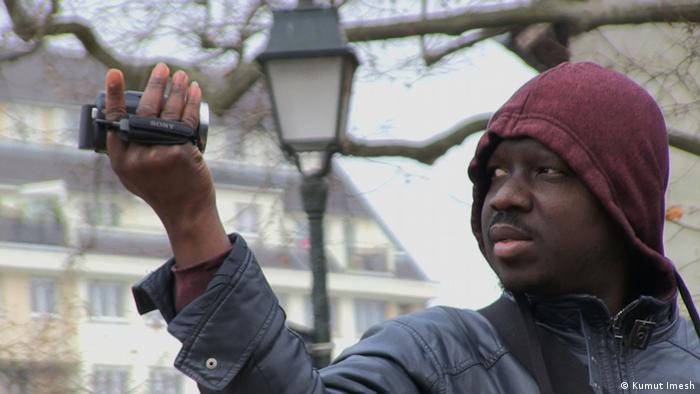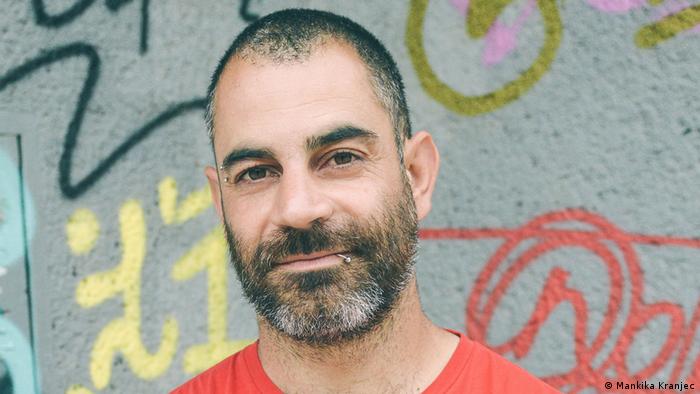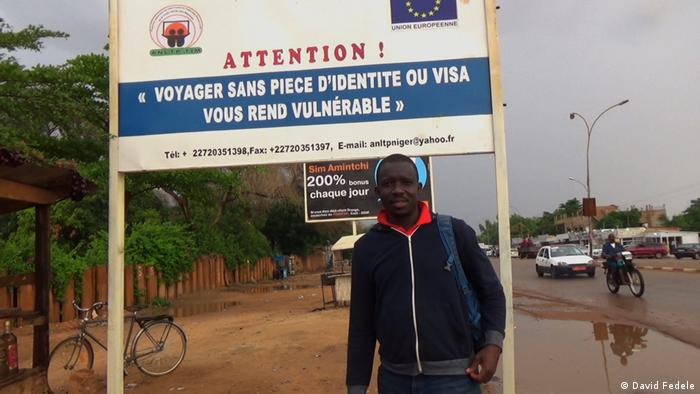On the run from the ivory coast, Kumut Imesh happened six countries before it reached Europe. 13 years later, he set out his Route in a film track. The resulting documentary, “Revenir”.

A phone call alerted Kumut Imesh, that he was no longer in his home country of ivory coast. So the politically active Student in 2004, fled across the border to Ghana. As he met the country people, he felt still in danger, and travelled on to Togo, Benin and Niger. Reached partly on foot through the Sahara to Algeria, before he was for seven years in Morocco.
There, the refugees Ivorians hit the Australian filmmaker David Fedele, who was looking for a Translator for one of his film projects. Kumut Imesh took over the Job. Even then, had come the idea for your film project, says Fedele in the DW-Interview. “We have started to discuss it in Small, but I was not sure if it is something Serious or not”. Only three years later, the two flesh out your idea.
Imesh received asylum in France. About Crowdfunding, the two of around 20,000 euros collected for the implementation of your documentary film. In the meantime, Revenir “(to Return)” is finished. The Film shows how Imesh 13 years after his escape on the way, to follow the same Route – only this time with camera equipment. David Fedele has supported him as a Director. The Film was part of the inaugural programme of the Africa Film festival in 2018 in Cologne, Germany.
Escape from the interior perspective
On his way Imesh speaks with Refugees and is a Runaway. For Fedele that was to tell the core of the film idea: the escape story from the inside perspective in a new way. On elements such as mood music, the Director has consciously. “We’re not telling anybody, how he to think or to feel,” says Fedele. It was just a raw documentation of life on the road.

The Australian filmmaker David Fedele resulted in “Revenir” directed by
Imeshs first target group of Africans, he says. Politicians, and also families should understand how the reality of the Refugees looks like. He wants to show the causes of the escape and the difficulty of the journey. “We don’t tell people that they should stay or go, we just say to them: So the reality is.”
The International organization for Migration has counted in the year 2017 on the African continent to 1700 deaths in connection with Migration – almost 700 of them from the Sahara. “If you fail, it means death,” says Imesh about the attempt, the Sahara desert. For this, he wants to create attention.
Stop halfway
In his film project, Imesh’t reached the desert. On the way to Agadez in Niger, he was arrested and detained until he could be and his equipment to buy. “Revenir” documented this time in the Form of recorded phone calls and text messages between Imesh and Fedele. The Protagonist was – how many refugees without valid travel documents on the go.
His greatest difficulty on the trip was his camera, says Imesh. The smugglers were afraid that he would denounce her business. Interview partner wanted to delete the records again. For the journey to Agadez for one to two months were scheduled. However, Imesh took three and gave up then.

Kumut Imesh made it to the Niger where he, and for several days detained, was arrested
Fedele was his contact person in case of emergency. Although he was in Morocco, he felt the responsibility and the dangers of film travel, says the Director. “It was a risk-rich Experiment, but Kumut came back safely. Now we can travel around the world and the movie show”. The risk had been worth, said Fedele.
An escape story of many
Since December of last year, tours of the Protagonist and the Director to the world. Many refugees from different Parts of the world would come on you, says Fedele, because they knew their own story on the canvas again. You have been important to you and, with your Film, the idea of break through that people flee not just to come to Europe. Migration happens mostly in neighboring countries.
Imesh wants to continue to make films and the journey yet to complete. Currently, he lives and works in Paris with his family. With his organization “action of solidarity for refugees” (ACSORE), he is dedicated to the Integration of asylum seekers and Refugees. David Fedele wants to continue to turn a blind advocate, to create more understanding for the causes of Flight: “This idea of closing doors, borders for people who are desperate for help – this is something that I personally, and we will fight both of them.”